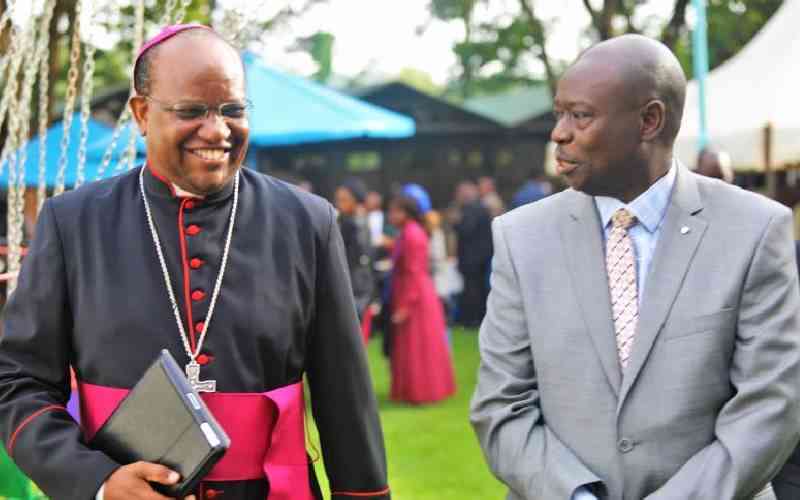×
The Standard e-Paper
Stay Informed, Even Offline

Whenever he is not leading mass and preaching to his congregants, Nyeri Catholic Archbishop Anthony Muheria is most likely on another public platform, speaking on a national issue.
Over the years, Archbishop Muheria has emerged as a voice of reason, always ready to register his contribution to national discourses.